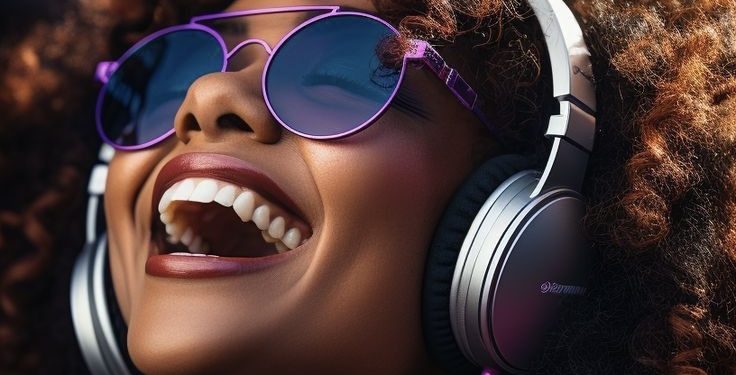
In Ghana, music isn’t just background noise; it’s currency, culture, and confession. From the dusty corners of Nima to the marble-floored lounges of East Legon, a hit song isn’t stumbled upon by accident; it’s engineered with intention, emotion, and just the right amount of “pressure be what?”
The average Ghanaian hit is a perfectly measured blend of beats that slap, hooks that stick like banku to fingers, and lyrics that either move the waist or move the spirit. But beneath all the catchy melodies and viral dance challenges lie tried-and-tested themes, ingredients that turn your SoundCloud upload into a street anthem or a Vodafone Ghana Music Award entry.
So if you’re an artist chasing your next viral moment—or aiming for that Artiste of the Year plaque—these are the seven themes that serve as your certified cheat code.
1. Love – The Evergreen Fuel of Ghanaian Music
If Ghanaian music had a heartbeat, it would be love. Whether crooned over highlife chords or wrapped in afrobeats drums, love songs dominate the scene—and for good reason. They hit every emotional note.
Romantic jams like Kuami Eugene’s “Angela” or King Promise’s entire discography speak directly to the heart (and sometimes the Momo wallet). But love isn’t all roses and voice notes. Ghanaian artists excel at heartbreak ballads—especially the kind inspired by seeing your ex with someone richer at a wedding.
And then there’s the sensual stuff—where lyrics flirt between poetry and provocation. From Daddy Lumba’s innuendos to Darkovibes’ more daring takes, sexuality has long been a chart-topping spice. Just keep it suggestive enough that Ghanaian parents can pretend they didn’t hear it.
If things go left in the romance department? Perfect. Betrayal and disappointment have made for some of the most painful—and powerful—songs on the airwaves. Heartbreak sells. Every time.
2. Dance & Party – If It Doesn’t Move, It Doesn’t Chart
Ghana is one big celebration waiting to happen. So it’s no surprise that music here must move hips, shoulders, and entire bridal parties. If your track doesn’t make someone scream “DJ, pull it up!” at a wedding, forget about it—it’s background noise.
From the Azonto and Alkayida eras to the current “Bad boy” and “Amapiano-laced” anthems, party songs fuel December, club nights, and TikTok. Think of Shatta Wale’s “Dancehall King” or Lasmid’s “Friday Night”—they don’t just play, they possess the crowd. Add a dance challenge, and you’re booked till next Easter.
3. Motivation – The Hustler’s Anthem
If there’s one thing Ghanaians love more than jollof, it’s a motivational banger. Tracks that chant “you go make am” over mellow keys and hope-filled lyrics are food for the weary soul.
Money talk is irresistible. Mention “dollars,” “Range Rover,” or “East Legon,” and you’ve got ears. Songs about the hustle—like “Sika Aba Fie” or “Obiaa Boa”—aren’t just aspirational; they’re spiritual experiences for people dodging potholes and power cuts.
And nothing seals a hit like a rags-to-riches narrative. Even if your grass-to-grace story is slightly fictional, as long as it’s wrapped in conviction, the people will believe you. Ask Black Sherif.
4. Akutia – The Art of Saying Without Saying
Ghanaian music has a rich tradition of throwing shade…politely. Akutia is the high art of lyrical innuendo—where you call someone out without naming names and make the insult poetic enough to win a Chale Wote award.
Through proverbs, metaphors, and sly rhymes, artists address fake friends, shady politicians, ex-lovers, and rivals while leaving just enough ambiguity to dodge lawsuits.
Fans? They love the decoding game. Twitter threads pop up hours after release, with listeners acting like lyrical detectives trying to unearth hidden meanings. Akutia makes music an experience—not just a listen.
5. Comedy – When Music Meets Jokes
If you can make Ghanaians laugh and dance at the same time, you’ve unlocked cheat-code-level success.
Humour in music has gained traction with acts like AY Poyoo(“GOAT”) and Teacher Kojo, whose skit-based songs turned into viral hits. Whether it’s roasting bad relationships, mocking internet scammers, or dramatizing the woes of ECG, songs that blend satire with rhythm strike a special nerve.
Injecting local slang, inside jokes, or exaggerated drama doesn’t make the song any less meaningful. If anything, it makes it more relatable. And when people laugh, they share.
6. Street – Swagger, Slang & Sikasɛm
Street music is the raw, unfiltered voice of the Ghanaian youth—often loud, gritty, and soaked in pidgin or Twi-English fusions.
It’s not just music; it’s lifestyle. It’s confidence in audio form. From streetwear references to coded threats, from name-dropping designer brands to flexing imaginary riches, street anthems hit hard because they reflect the daily hustle with swagger.
Think of the viral power of catchphrases like “On God,” “Pressure be what,” or “No size.” When repeated enough, these become mini-mantras embedded in culture.
Street music isn’t arrogance. It’s marketing. And it works.
7. Religious & Spiritual – Gospel or Not, God Dey Inside
Even the hardest trap beat in Ghana might still include a “Thank you Jesus” adlib. That’s because spirituality is deeply woven into the national psyche—and music is no exception.
Whether it’s a full gospel number or a secular hit with lines like “Nyame yɛ bɔne dɛ,” invoking God earns emotional points. Artists like Ohemaa Mercy bring down the heavens, while secular names like Fameye slip in spiritual gems that resonate across beliefs.
Blend faith with motivation, and you’ve got a cross-market classic that bangs in both nightclubs and Sunday morning playlists.
Honorable Mentions: Truth Bombs & Hot Takes
Every now and then, a song sneaks past the usual suspects of love, party, hustle, and holy praise to prove that hits can wear different hats. These are the outliers—the thought pieces wrapped in rhythm. Whether it’s a fiery political jab from Barima Sidney or a sobering social commentary from M.anifestor Sarkodie, sometimes Ghanaians put down the dance moves and pick up the message. Sure, these themes may not dominate every December banger or TikTok trend, but when they hit, they hit hard—stirring conversations, shaking systems, and occasionally, catching the ear of both the streets and the suits.
Hit-Making Isn’t Luck — It’s Psychology
In Ghana, making a hit is part science, part soul. A killer beat alone won’t save you. You need a hook people can scream in traffic, lyrics that feel personal, and authenticity that smells real. Ghanaians spot a poser faster than ECG cuts power.
So what’s the winning formula? Love + Hustle + Small Party + Akutia + Hook = Certified Banger. Sprinkle in street slang, stir in a little God, garnish with a viral dance, and boom. You’re on every playlist from Kumasi to Koforidua.
Because here, we don’t just listen to music; we live it, feel it, quote it, and tweet it.
So before you hit the studio, ask yourself:
• Is it sika or odɔ?
• Can people dance to it?
• Will someone shout, “Herh, this song deɛ!”?
If yes, then chale, you just might have your next hit.
DISCLAIMER: The Views, Comments, Opinions, Contributions and Statements made by Readers and Contributors on this platform do not necessarily represent the views or policy of Multimedia Group Limited.
DISCLAIMER: The Views, Comments, Opinions, Contributions and Statements made by Readers and Contributors on this platform do not necessarily represent the views or policy of Multimedia Group Limited.
- President Commissions 36.5 Million Dollars Hospital In The Tain District
- You Will Not Go Free For Killing An Hard Working MP – Akufo-Addo To MP’s Killer
- I Will Lead You To Victory – Ato Forson Assures NDC Supporters
Visit Our Social Media for More




